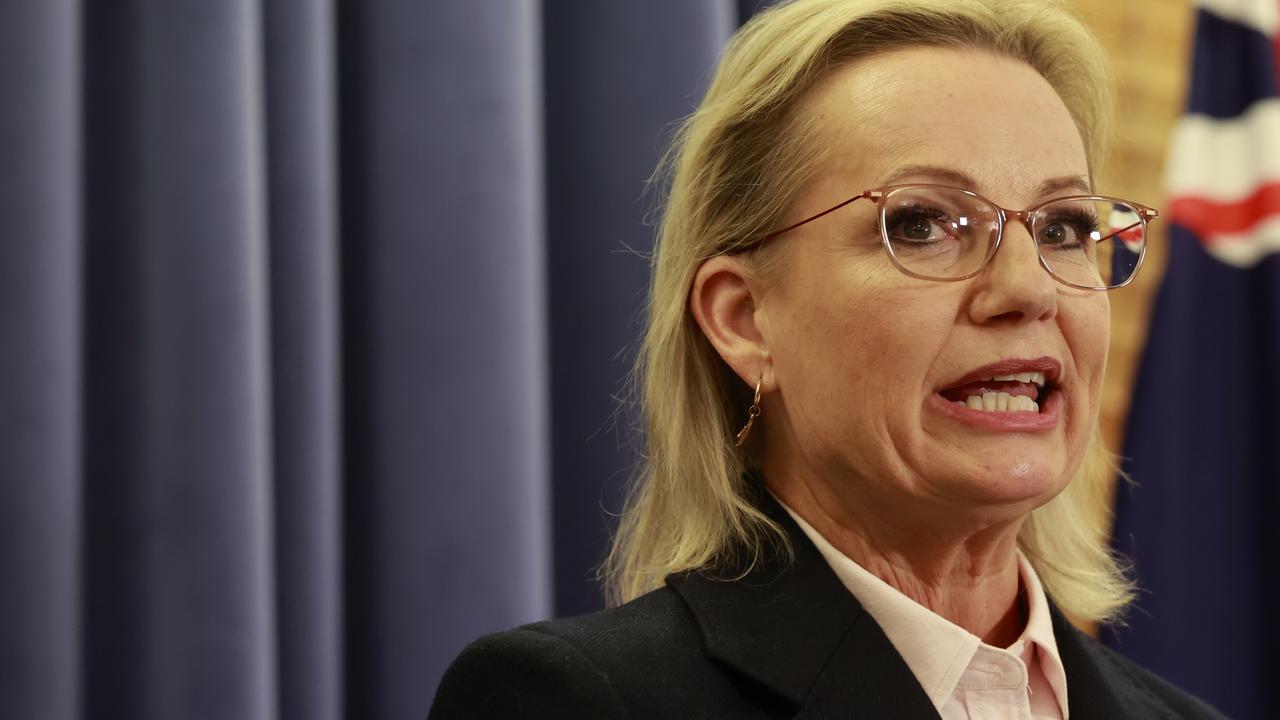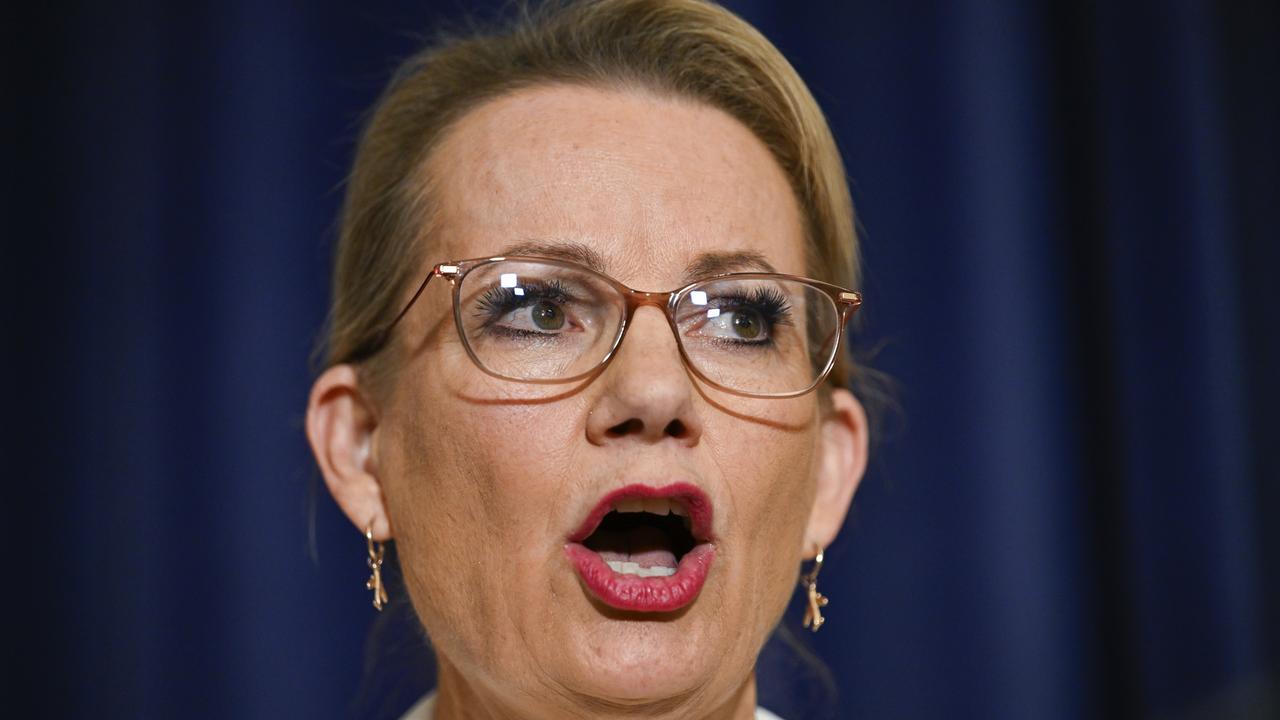2025 election: Anthony Albanese Labor government report card
Cost of living dominated the Albanese Government’s first term in office – but what do you say is his biggest area of concern? VOTE NOW
Analysis
Don't miss out on the headlines from Analysis. Followed categories will be added to My News.
Cost of living dominated the Albanese Government’s first term in office, with Labor struggling on key promises to lower power bills and mortgages, with Australians paying the price.
As Anthony Albanese is given a second term as Prime. Minister, we look at how he fared across the board so far.
Readers also gave the PM a low rating in several key areas in a sign of what he must fix the second time around.
See how Albo is rated below and cast your vote >>>
ENERGY: D
One of the biggest broken promises of Labor’s first term was the pledge to slash household electricity costs by $275 a year by 2025.
When the claim was first made, in late 2021, it may have seemed like smart politics. Labor said, if elected, it would not only deliver cheaper prices, but extra jobs and lower emissions.
Cost of living expert Joel Gibson said “I’d mark this government up for helping people through the biggest energy price rises in living memory with $300 energy rebates for every household”.
“But I’d have to mark them down for the progress they’ve made on securing affordable energy for the future,” he said.
“They were unrealistic about how long it would take and how much it would cost.”
ECONOMY: C
Inflation is moderating and unemployment remains low, but a lack of spending restraint or ambition on tax reform to tackle structural budget deficits have left Labor just scraping a passing grade on the economy this term.
A February cut brought welcome relief to households, but as Labor has readily acknowledged — the pain of years of higher inflation remains across the economy.
Promises of cheaper power and mortgages did not eventuate, while soaring prices of things like groceries and insurance have hurt households.
Independent economist Saul Eslake said he has three key criticisms of Labor’s economic response — they’ve had “a lot of new spending,” have poured cash into “low quality policy” such as off-budget measures like the Future Made in Australia initiative, and extended a lucrative GST deal for Western Australia at the expense of the budget bottom line.
“They haven’t really exercised much discipline over spending,” he said.
Mr Eslake said he “applauds” Labor for its restructure of the stage three tax cuts and for producing two budget surpluses, even if this was partly down to “luck” from revenue windfalls.
INDIGENOUS AFFAIRS: C-
Anthony Albanese did what they said he’d try to do by pushing for a Voice referendum.
But it’s failure and with major closing the gap targets off track it’s hard to find a positive achievement in the first term.
Labor has also failed to quell concerns they would bring back the Voice in another form - following very public mistakes by Penny Wong and Anika Wells.
Uluru Dialogue co-chairs Pat Anderson AO and Professor Megan Davis AC in February accused the Prime Minister of breaking his election promise, after saying “we had a crack” when asked if he was still committed to implementing the statement in full.
Indigenous studies Prof Andrew Gunstone, who is also Reconciliation Victoria co-chair, said it was “very disappointing” that while Mr Albanese had delivered on his referendum pledge, he hadn’t kept his promise to implement a Makarrata Commission.
Prof Gunstone acknowledged the government had done “quite a bit of work” on health and employment programs, housing reform, and justice.
But he said the closing the gap targets were still not being met.
“That’s a significant markdown,” Prof Gunstone said.
HOUSING: C+
The real life results of Labor’s investments in affordable housing and it’s Help to Buy scheme – both delayed by the Senate – is yet to be felt, according to peak bodies.
There remains significant challenges on the supply-side of the housing crisis, like a lack of skilled workers, state-level bureaucracy and planning issues.
Housing Industry Australia managing director Jocelyn Martin applauded the national housing target, nut say while Labor’s policies have the “makings of exactly what we need” they are “still yet to show any successful results”.
Master Builders Australia chief Denita Wawn warned there was “still a long way to go” to building 1.2m homes under the accord.
“Builders and tradies are frustrated,” she said. “We can’t keep tinkering at the edges.”
EDUCATION: B+
Fee-free TAFE, $3 billion wiped from student HECS debts and cheaper childcare have been hallmarks of Labor’s focus on education over the last three years.
A new deal with every state and territory that will ensure all public schools are fully funded has been praised, while the higher education sector is unhappy with deep cuts to international student numbers.
The Parenthood chief executive Georgie Dent said the Albanese government had done more for early childhood education and care than any predecessor.
Ms Dent said Labor’s investment in wages for educators had been “absolutely critical” and welcomed the three day a week guarantee and scrapping of the activity test for parents.
Universities Australia chief executive officer Luke Sheehy praised cutting student loan debts, but accused Labor of using the sector as a “political tool” during the migration debate.
“Progress under Labor has been good, but we have a long way to go,” he said.
HEALTH: A-
Labor has laid the groundwork for generational reform on primary care, but more work needs to be done on mental health and chronic disease.
Grattan Institute health program director Peter Breadon said Labor had delivered key investments on health including Urgent Care Clinics, $1.7bn for state-run public hospitals, tripling the bulk billing incentive for concession card holders and children, and launching the interim Centre for Disease Control.
“Labor has laid a lot of foundations for reform that need to be taken further, those foundations are quite strong,” he said.
Mr Breadon said long-term reform would require more than a single term, leaving a significant health agenda for Labor if it’s re-elected.
FOREIGN AFFAIRS: B-
Labor has stabilised trade relations with China and built up relationships in the Pacific and South East Asia this term, but suffered a late clanger with the Russia and Indonesia debacle.
Beijing has sent a flotilla of warships around Australia, conducting live fire exercises in the Tasman Sea, which the government first learned about from a Virgin pilot flying by.
And despite Anthony Albanese talking up his relationship with US President Donald Trump, it wasn’t enough for Australia to escape worldwide US tariffs – although we were hit with the lowest rate.
Deakin University Professor Damien Kingsbury said the rebuilding of relations and stabilising trade with China, and the South Pacific “have been quite big achievements”.
“Less positively would be Australia’s relationship with the United States … having Donald Trump as president has presented new difficulties in the relationship,” Prof Kingsbury said.
“The ten per cent tariff … is one we have to wear, but also the uncertainty about the US position in the world as our primary strategic partner.”
In recent weeks the government looked lost at sea dealing with reports Russia asked Indonesia to let them keep aircraft on their bases. The Russian ambassador has insulted Australia via the Jakarta press, while Mr Albanese has pretended like nothing is happening.
ANTI-SEMITISM: D
A raft of anti-Semitic incidents across the country kicked off by the conflict in Gaza spiralled out of control throughout 2024 and proved something the Albanese Government had massive difficulty getting a grip on.
Australia’s stance on the region at the United Nations was a flashpoint, centring on votes which supported a ceasefire in Gaza without removing Hamas.
Another backed controversial aid agency the United Nations Relief and Works Agency for Palestine Refugees (UNRWA), after it was cleared in an investigation of members having links to Hamas.
Australia’s votes drew condemnation from both Israeli diplomats and Australian Jewish groups, while a rise in horrific anti-Semitic incidents - including the firebombing of the former home of Jewish community leader Alex Ryvchin - highlighted how the hate crimes were spiralling under Albanese’s watch.
The government has previously defended its efforts to crack down on anti-Semitism, including legislating a ban on the Nazi salute and hate symbols, announcing $25m for improved safety and security at Jewish sites across the country, and unveiling a $100m plan last year to counter violent extremism.


